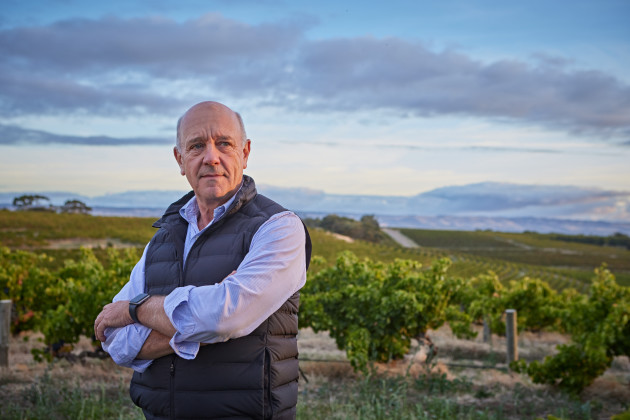
Long Read: Accolade shakes up its global fine wine strategy
Accolade’s Global Vintage Release programme was created last year to release all its top wines under one umbrella with one release date, thus appealing to modern attention spans and also consumer desire for ready-to-drink styles. Jo Gilbert charts how the world’s fifth biggest wine company decided to put all its fine wines in one basket.
Accolade Wine’s approach to the launch of its fine wines has long mirrored its own winemaking techniques. In what has become typical of winemaking Down Under, the country’s biggest wine company’s DNA lies in creating a blended family of grapes from across regions which allows winemakers the flexibility to pick the best grapes from the best sites while spreading its bets across climate risk-factors like fire, frost and drought.
The launch of these wines have historically followed a similarly staggered approach, with each wine having its own annual release date and push across markets.
Over the past year however, recognition of increasing “release fatigue”, has led to a different approach.
“Each brand did its own little thing and came out with its own release,” explains global wine director Nigel Sneyd MW. “Then, it was recognised that people were interested in wines, but they were time poor. There are just so many brands out there that we felt it was good to put our top brands, and the top wines from our top brands, under one umbrella and release them at once.”
Accolade’s second Global Vintage Release programme, which was released to press yesterday ahead of its full launch later in the year, means that all the company’s top wines will be released, for the second year in a row, to all markets at the same time globally with allocations for each market.
Brands include historic names like Eileen Hardy, Grant Burge and St Hallet, as well as the barnstorming Isle of Arras, which emerged from Tasmania in the 1990s to become the new cool kid of cool climate sparkling.
Each wine retails for £20 or above in the UK, and the aim stylistically is more on ready to drink quaffability as modern attention spans continue to dwindle.
The move is part of an ongoing focus on Accolade’s fine wine division. Having spent decades building grower relationships across all of Australia’s winemaking regions bar one, (New South Wales), the company made further in-roads at the top end with purchase of Fine Wine Partners (Petaluma, Stonier) in 2015, which was then rebranded to Accolade Fine Wines earlier this year.
Of course, the company’s history goes back much further. Accolade’s portfolio's earliest roots reach back to Houghton, the oldest brand in the range, founded in 1836, and Thomas Hardy & Sons, now Hardys, in 1853.
Houghton founder Jack Mann remains the legendary creator of dry white wine in western Australia prior to the widespread use of technology and refrigeration, which was later pioneered by Petaluma and Tapanappa founder Brian Croser.
“We think of wine as evolving over time, but every now and then something comes along that’s an absolute revolution, a game changer,” Sneyd says of Croser. “The introduction of expansive refrigeration was very much game-changing stuff.”
Accolade has undergone as many iterations as it has seen wine styles. Over the years, fashions have come and gone, and Accolade, rebaptised in 2011 from BRL Hardy, has seen and participated in them all.
“The development of premium quality wines in Australia has seen a whole lot of pendulum-like swings,” Sneyd says. From aromatic unoaked whites in the 1970s to the 1980s (“Back then, there was a motto ‘no wood no good’”) the company’s style now aims to occupy a more restrained middle ground.
Now, the focus on is on letting each brand inhabit its “own distinct personality”. Whether that’s a blend of Cabernet from Margaret and Franklin Rivers or Coonawarra, “One will be dominant, depending on the season” – Sneyd says the personality of each region must be taken forward.
“We’re not a bunch of technocrats in white coats making wine to a formula. Nor are we hipsters with bushy beards and home-spun jumpers. We’re looking for intelligent, respectful winemaking where freshness is to the fore,” he adds.
With this shift comes the shift in consumer buying habits. Accolade is aware that consumers are cellaring less, with less space in modern households dovetailing with a less patient, ready-to-drink mentality.
“Australia is at its best when it finds a middle point between accessibility and sophistication,” Sneyd says, quoting Jancis Robinson in a recent FT article.
As time moves on, Accolade is increasingly adopting this middle ground philosophy.
- For more on Accolade’s evolution, see the July issue of Harpers where we will be profiling Caroline Thompson-Hill, managing director in UK & Europe for Accolade Wines.
Keywords:
- wine
- UK
- Fine Wine
- MW
- Wines
- year
- top
- global
- brands
- fine
- second
- one
- fine wines
- DNA
- release
- top wines
- release programme
- vintage release
- global vintage release
- vintage release programme
- second global vintage
- modern attention spans
- hardy grant burge





